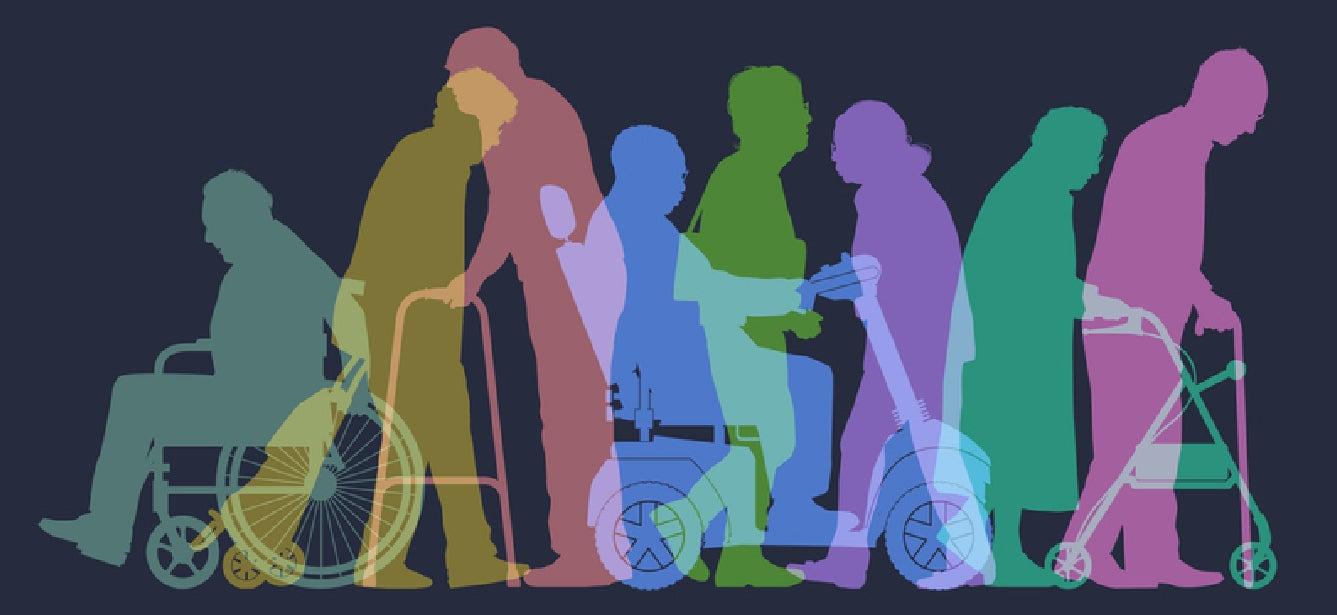Reaching Low-Income Medicare Beneficiaries: How Benefits Counselors and Funding Bridged Gaps During Medicaid Unwinding
8 min read

Related Topics
During the height of the COVID-19 pandemic, the Medicaid Public Health Emergency (PHE) continuous coverage requirement sought to promote access to care during a time when many Medicaid beneficiaries were especially vulnerable to the virus. In exchange for a temporary 6.2% increase in the Federal Medical Assistance Percentage (FMAP) states could use to ensure access to health care supports and services, the federal government required states to keep Medicaid beneficiaries in the program.
The Consolidated Appropriations Act of 2023 ended the Medicaid continuous coverage requirement for states on March 31, 2023. On April 1, 2023, states could begin terminating Medicaid coverage for those no longer eligible for the program. Once states started reevaluating eligibility, states would have 12 months to complete their eligibility evaluations. The expiration of the continuous coverage requirement and beneficiary transitions to other types of health insurance offerings has been called the Medicaid PHE unwinding. The PHE ended on May 11, 2023.
Some Medicaid beneficiaries would retain their eligibility, while others no longer deemed eligible would be dropped from the program. States began terminating enrollment for people no longer eligible for Medicaid throughout 2023. Arizona and Arkansas, for example, began dropping ineligible beneficiaries from Medicaid in April. Oregon did not begin this process until October. As of September 2024, just under 2 million older adults ages 50 to 64 lost their Medicaid eligibility during the unwinding.
NCOA surveyed State Health Insurance Assistance Programs (SHIPs), Benefit Enrollment Centers, and other community-based organizations to better understand what beneficiaries were saying and what the counselors were experiencing related to the Medicaid unwinding. The survey informed technical assistance to grantees during the unwinding.
NCOA’s unwinding survey was sent to counselors on four occasions or waves in hopes of understanding changes occurring once states started reevaluating Medicaid eligibility. The first responses were collected in July 2023 and the last in early-March 2024. Survey waves two and three were sent out just before and just after the Medicare open enrollment period for plan year 2024, respectively.
Respondents were asked to describe themselves in multiple ways, if applicable—as working for a Benefit Enrollment Center, community-based organization, MIPPA grantee, Senior Medicare Patrol (SMP), SHIP, or “another entity.” Respondents selecting “another entity” could then provide more details if they wished. Those that did identified as Area Agencies on Aging, Aging and Disability Resource Centers, state departments on aging, and Federally-Qualified Health Centers. Respondents to all four surveys consistently identified most often as SHIPs, MIPPA grantees, or SMPs.

MIPPA grantees help low-income Medicare beneficiaries enroll in the Part D Extra Help program as well as in the Medicare Savings Programs. Also, MIPPA funds outreach related to education around Medicare’s preventative services that could help Medicare beneficiaries age well.
Respondents mostly worked in states located in the Midwest and South such as Illinois, North Carolina, and Texas. Survey responses from the Midwest and the South made up 44% and 32% of all responses, respectively.
Does the survey contain any national policy and advocacy takeaways for 2024?
The survey highlighted the invaluable assistance enrollment counselors provided during the unwinding. Respondents said that Medicare beneficiary callers age 65 and older, for instance, called to request help with enrolling in Medicare, Medicare Savings Programs, and re-enrolling in Medicaid. Funding MIPPA in the past ensured that enrollment counselors were there to help beneficiaries understand their Medicaid eligibility redeterminations and, if applicable, help them apply for Medicare, Medicaid, or other programs.
The survey, for instance, showed the great degree to which benefit enrollment counselors provided essential assistance to individuals dually-eligible for Medicare and Medicaid.
What does the survey say about the support provided by enrollment counselors to individuals enrolled in both Medicare and Medicaid during the unwinding?
Across the four surveys, an average of 73% of respondents said people who are dually eligible sought assistance with re-enrolling in Medicaid. Counselors reported helping them understand state unwinding notices, re-enrolling in Medicaid, as well as understanding and enrolling in Medicare. Researchers at the University of Michigan and the University of Pennsylvania conducted a separate study in January and February 2024 of people who are dually eligible between ages 65 to 80 to better understand their experiences during the PHE unwinding. Among the surveyed respondents, 29% said individuals dually eligible for Medicare and Medicaid needed help from outside sources to understand the unwinding.
Counselors responding to the survey said they answered questions around navigating access to prescription drugs as well as other health care supports and services. The University of Michigan and University of Pennsylvania study authors reported varying levels of access barriers among people who are dually eligible to oral health care (25%), home health (19%), doctor’s visits (13%), and prescription drugs (12%). Taken together, these two surveys highlight that the unwinding likely adversely affected beneficiaries with disabilities and lower incomes.
What was learned about the degree of state unwinding outreach?
NCOA wished to know what, according to respondents, prompted callers to reach out to enrollment counselors. These survey results are valuable because they provide information on the efficacy of state outreach during the unwinding. According to the Georgetown University unwinding tracker, all states and the District of Columbia reported developing unwinding-related communications resources and toolkits and all states (plus D.C.) except for Alabama reported developing unwinding FAQs. Authors of a recent KFF report examined the ways states said they improved recertification processes for seniors and people with disabilities during the unwinding. According to the report’s authors, 40 states said they did more direct outreach to enrollees about renewals than they had done previously. Moreover, 30 states said they increased their partnerships with CBOs, 30 states said they provided new ways for beneficiaries to update their contact information, and 20 states said they revised their renewal notices.
The NCOA PHE unwinding survey showed that state outreach around mailed notices and phone calls were most likely to lead an individual to call a benefit enrollment counselor. Counselors, however, said that beneficiary calls were also likely to be triggered by an individual not knowing about their loss of Medicaid, their trying to use their Medicaid benefit, but then discovering they were no longer eligible for the benefit. The survey therefore shows that state outreach wasn’t always effective. Advocates and policy makers ought to in future months and years evaluate how the frequency of outreach or the method of information delivery could have been improved during the PHE unwinding so that changes can be effectuated prior to any future public health crisis.

What was learned about counselors’ experiences working with states to help individuals affected by the unwinding?
Counselors highlighted that they used federal and state resources (unwinding FAQs and communications resources) to help beneficiaries navigate the unwinding. The survey also showed that counselors benefited from state resources such as translation services and referrals to state-administered Older Americans Act programs. A large percentage of respondents said, however, that they did not refer to federal or state unwinding-related resources or that they were not aware of them. The survey showed the limitations of unwinding-era federal and state governments efforts to make enrollment counselors aware of the importance of their unwinding resources. Most documentation called attention to the fact that this was happening but did not seem to move the needle on having beneficiaries look out for their notice of loss in benefit, or to provide a detailed plan of how to appeal or reapply for those benefits.

Respondents said that they did not have enough staff to assist with unwinding-related and non-unwinding-related beneficiary calls. This survey finding showcases the chronically under-resourced nature of enrollment counseling and the important role MIPPA grants play in helping enrollment counselors reach low-income Medicare beneficiaries.
The survey also showed that states have an opportunity to make their notices clearer in the months and years ahead. Having obtained their state unwinding mailings, many survey respondents told us that the states could have made their notices easier to understand. Also, states could have done more to highlight the importance of completing and returning paperwork mailed to them. Policymakers and advocates may want to stress to states that they ought to test messaging of notices among enrollment counselors. This could also be a way to strengthen state-counselor relationships.
During all four survey waves, counselors said that they worked with state Medicaid offices when the state referred beneficiaries to enrollment counseling services. A smaller number of respondents said that states gave them access to state systems that helped them do such things as learn the status of an application. This should be explored further by more states since this access likely helped many beneficiaries. Many respondents said, however, that their collaboration with states during the unwinding was nonexistent.
The survey, therefore, showed the kinds of counselor-state collaboration that helped counselors assist beneficiaries, but the large number of respondents saying that states did not collaborate with them at all shows the importance of learning lessons from the unwinding by strengthening relationships and increasing collaboration. It also displayed just how crucial the MIPPA grants are in each state.



